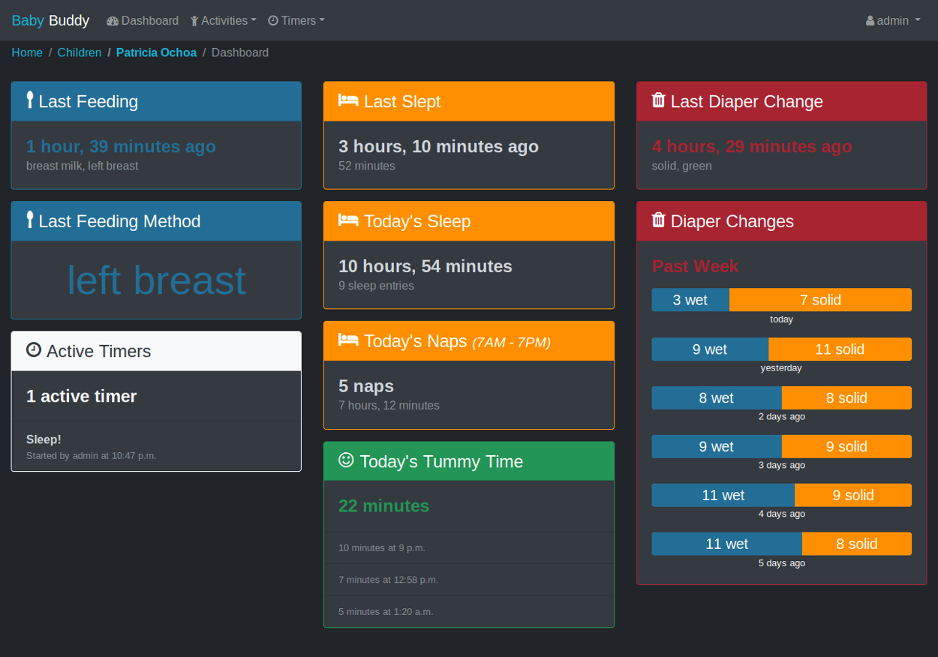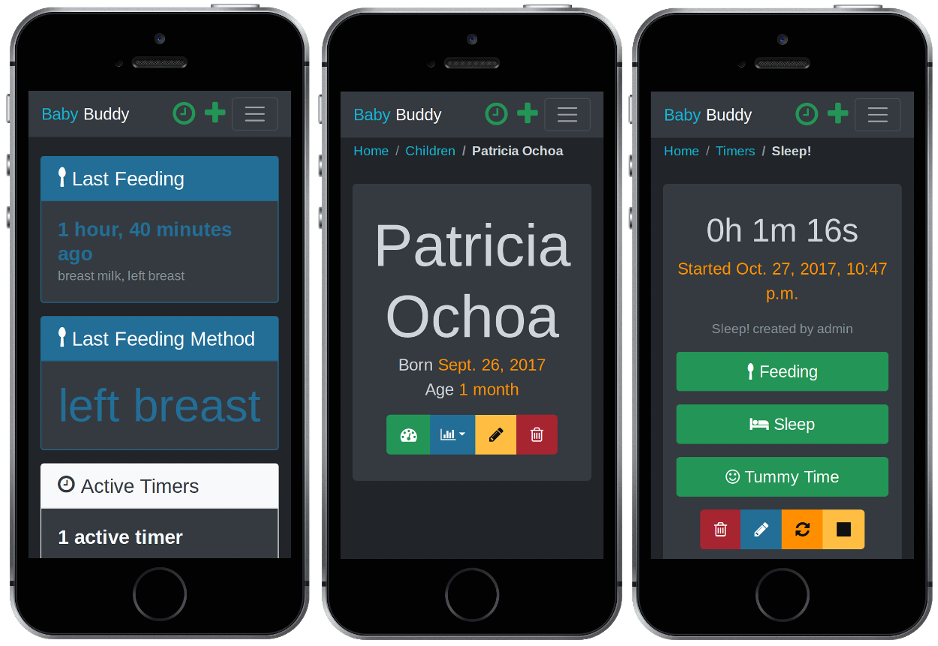Baby Buddy: an Open-source Free newborn digital assistant
Table of Content
Baby Buddy is a free open-source web-based solution for new parents to help them log, monitor and track their parenting activities.
As it is primary function, it helps users log:
- Sleep
- Feeding routine
- Feeding methods
- Diaper changes
- Tummy time
Soon as the project lunched on GitHub, it gains a lot of attention from developers who star and fork it, and report several development issues to the developer.
Baby Buddy is a built by Christopher Charbonneau Wells who has released many interesting projects.
The project built with Django (Python), and uses several development libraries for front-end development.
Note that it is under continues development so expect more features in the near future.

Baby Buddy's Features
- A responsive design that works seamlessly on mobile and desktop
- An informative dashboard
- Monitor and tracking logs
- Timer management
- Active timers notification
- Activity monitoring
- Track feeding
- Diaper change tracking
- Feeding method
- Charts and graps
- Tummy time management
- Sleep tracking and management
- Multiple-languages support
- Import and export functionalities
- Multiple deployment options
- Docker support
- Developer-friendly API for building mobile, desktop apps.

Available languages
- English
- Dutch
- Finish
- German
- French
- Italian
- Portuguese
- Spanish
- Swedish
- Turkish
Tech stack
Django REST Framework, Node.JS, NPM, Bootstrap 4, Plotly, Gulp and Travis CI.
License
Baby Buddy is released and distributed under BSD-2-Clause License.









